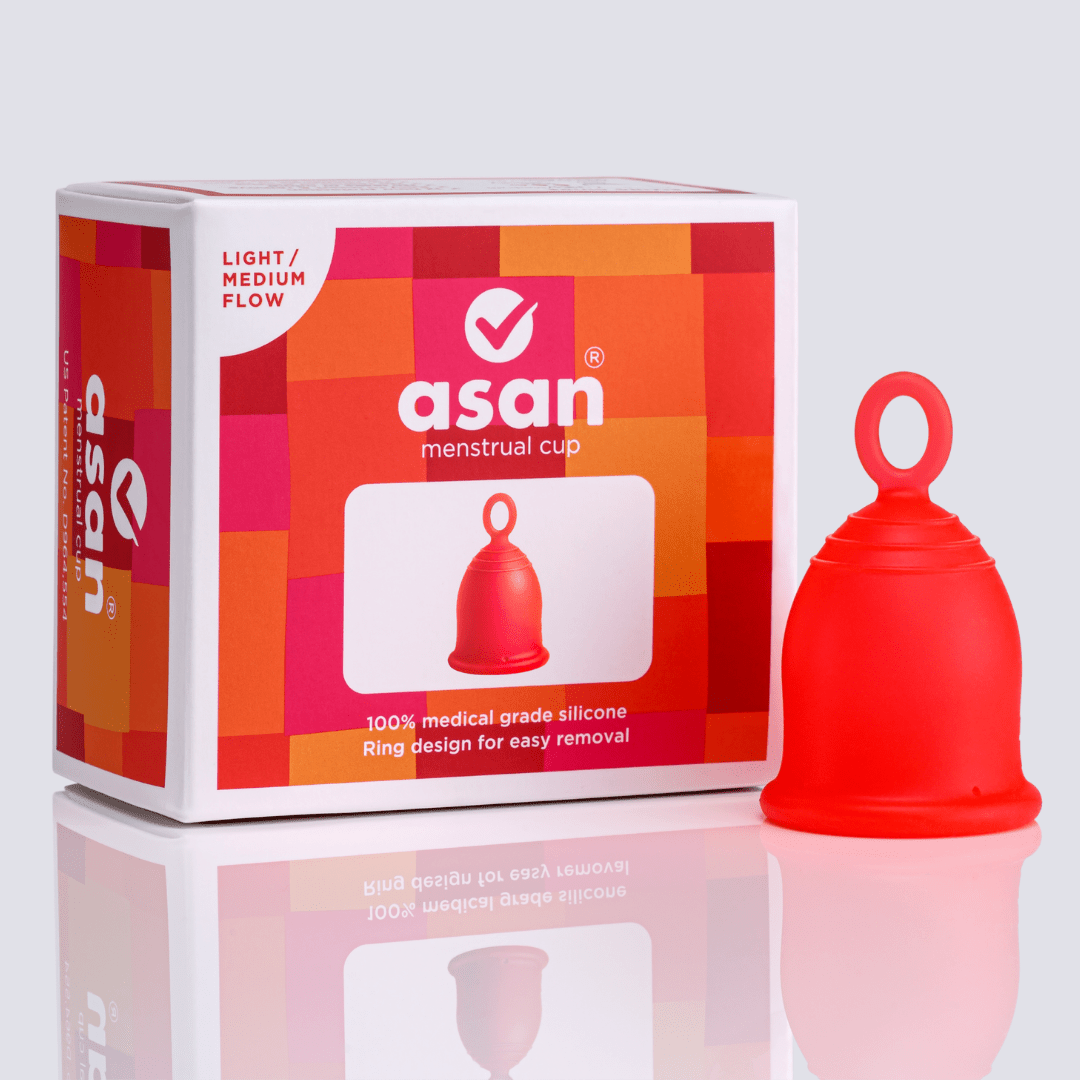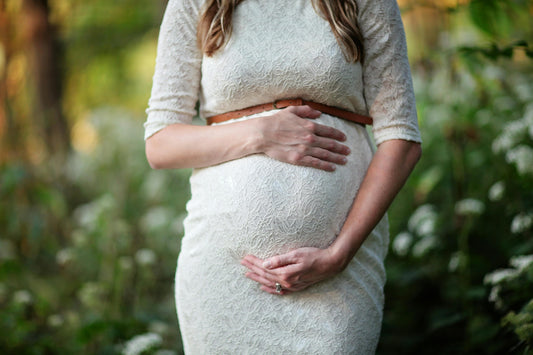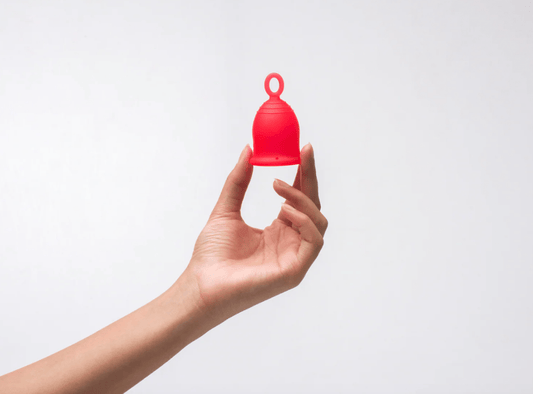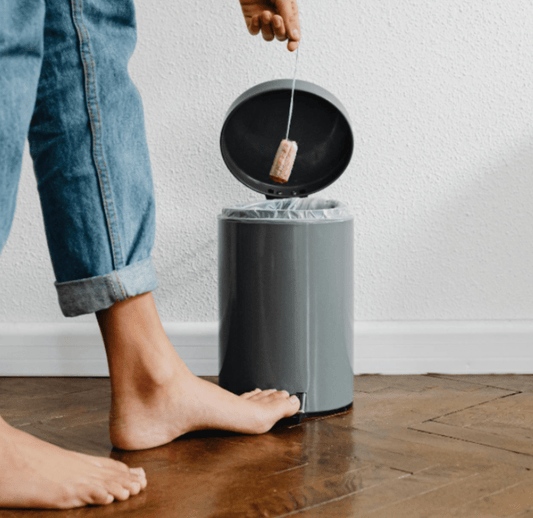
Have you ever stood in the period products aisle and wondered “what exactly am I putting in my body?” If not, you’re not alone.
Most of us don’t really think about the ingredients in tampons or our other period products, but if the recent news about tampons is any indication, it’s about time we do.
A new study led by UC Berkeley found that tampons from many popular brands contain toxic metals like lead, arsenic, and cadmium. Tampon safety concern is a real issue because 50-80% of menstruating people use tampons, and are hence exposed to the toxic chemicals in tampons.
Despite this, very little research has been done to analyse harmful substances in tampons. Although we’ve known about other toxins in menstrual products such as plastics and phthalates for a while, this study was the first to actually measure the presence of toxic metals specifically in tampons.
The reason for it is that as an insertable menstrual product, tampon materials are of particular concern as a source of exposure to chemicals because the skin of the vagina has a higher potential for chemical absorption than skin anywhere else in the body.
According to the study, metals could increase the risk of dementia, infertility, diabetes, and cancer. In addition to other health implications, they could also harm maternal health and foetal development.
How did the metals get into the tampons?
There are a number of ways metals could have made their way into tampons.
Tampons are made of cotton or a mixture of cotton and rayon. These synthetic fibers in tampons are made from wood pulp.

The study suggests that the cotton material could have absorbed the metals from water, air, soil or through a nearby contaminant.
They could have also been intentionally added during the manufacturing process as part of a pigment, whitener, or antibacterial agent.
Why did I not know about this?
Tampons in the US are classified as medical devices by the Food and Drug Administration (FDA), and hence the manufacturers are not required to list their ingredients on the packaging.
However, even if they are listed, there isn’t enough research about the toxins in tampons, and lack of awareness among people to actually be conscious of the ingredients before buying.
There have also been very few studies on the impact of commercial tampons and pads on our bodies.
Are tampons safe?
The Berkeley study evaluated 30 tampons from 14 different popular brands — organic tampons as well as synthetic tampons and found metals in both.
No category, including “natural tampons” had consistently lower concentrations of all or most metals.
They found that while lead concentrations were higher in non-organic tampons, arsenic levels were higher in organic tampons.
So, it can be safely said that whatever tampon brand you use, whether it is organic or not, will have some concentration of metals.

However, what the study didn’t focus on was how much of the metals present in the tampons can actually be absorbed by the body.
For now, it is still unclear whether the metals detected in the tampons are actually contributing to any negative health effects.
If you’re a tampon user, here are some measures you can take to try and reduce tampon health risks:
1. Choose products that don’t contain plastic, and especially avoid those with fragrances and colourants.
2. Tampons and toxic shock syndrome is a real worry. Try to avoid using tampons at night, or make sure that you don’t leave them in for longer than 8 hours due to an increased risk of toxic shock syndrome.
3. Use lower absorbency tampons and change them frequently to avoid risk of infections.
4. Always wash your hands before and after inserting and removing a tampon to reduce spread of bacteria.
5. Try switching to healthier and safer tampon alternatives such as a menstrual cup. To learn more about this, read our blog on menstrual cup vs tampons: which is better?
Other than the health risks associated with a tampon, it is important to also discuss the tampons and environmental impact.
The plastic from tampons is one of the biggest sources of waste worldwide, and is heavily contributing to land and water pollution. Even though there might be some eco-friendly tampons, they are just not a sustainable period product option.
What safe menstrual products can I use?
If you’re looking to switch from tampons for healthier and more sustainable periods, you should definitely consider using a menstrual cup.
The Asan cup is made from class VI medical grade silicone, which is the same material used in heart stents and breast implants.

It is biocompatible and has gone through multiple rounds of user testing to make sure that it is super safe for your body.
Additionally, the risk of infection, including toxic shock syndrome is extremely low with a menstrual cup. Since menstrual cups collect period blood, rather than absorb it, they are less likely to trigger growth of bacteria.
The Asan cup can be worn for up to 12 hours without risk of infection or worry of leaking.
The best part is that you can swim, dance, do yoga and be as active as you want during your period while wearing the Asan cup, hence keeping yourself and your mind happy and healthy!
If you’re a tampon user, it will be very easy for you to switch to a menstrual cup as you will already be used to the sensation of inserting something into your vagina. However, this doesn’t mean that women who haven’t tried a tampon before cannot use a menstrual cup.
The Asan cup is easy to use and very beginner friendly. Learn more from our guide on how to use a menstrual cup for beginners.
Read this blog if you’re wondering whether to try a tampon before using a menstrual cup.
Frequently asked questions
Are there non-toxic tampons?
There are some tampon brands that are organic and more eco-friendly. However, due to the lack of research around this topic, it is difficult to say whether there are any tampons without chemicals.
This doesn’t mean that all tampons are bad for you, it simply suggests that there might be certain health risks associated with tampons but not enough research has been conducted to know that for sure.
Should I be worried about tampons and allergies?
It is possible to be allergic to certain materials that are found in tampons and other menstrual products. Sometimes, this can be detected by vaginal itching or dryness.
If you think that you’re experiencing an allergic reaction to a tampon, please remove it immediately and seek medical help.






